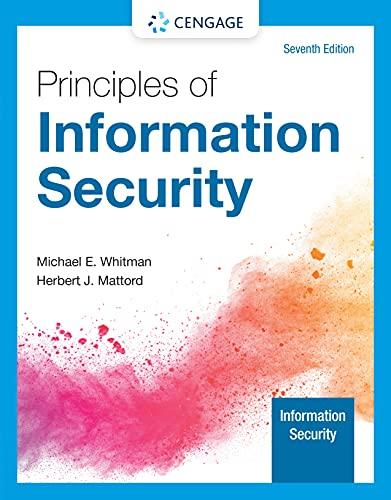Present the fact that trespassing often leads to unauthorized, real, or virtual actions that enable information gatherers
Question:
Present the fact that trespassing often leads to unauthorized, real, or virtual actions that enable information gatherers to enter premises or systems they have not been authorized to enter.
Discuss that the classic perpetrator of deliberate acts of espionage or trespass is the hacker. In the gritty world of reality, a hacker uses skill, guile, or fraud to attempt to bypass the controls placed around information that is the property of someone else. The hacker frequently spends long hours examining the types and structures of the targeted systems.
Remind students that there are generally two skill levels among hackers. The first is the expert hacker, who develops software scripts and program exploits used by the second category, the novice, or unskilled hacker.
Explain that the expert hacker is usually a master of several programming languages, networking protocols, and operating systems and exhibits a mastery of the technical environment of the chosen targeted system.
Demonstrate that expert hackers who have become bored with directly attacking systems have turned to writing software. The software they write are automated exploits that allow novice hackers to become script kiddies (or packet monkeys)—hackers of limited skill who use expertly written software to exploit a system, but do not fully understand or appreciate the systems they hack.
Compare and contrast the difference between professional hackers and penetration (pen) testers. Although they are doing the same thing, which is testing the information and network defenses, professional hackers are doing it illegally, whereas pen testers are conducting them ethically and professionally.
Step by Step Answer:

Principles Of Information Security
ISBN: 9780357506431
7th Edition
Authors: Michael E. Whitman, Herbert J. Mattord





